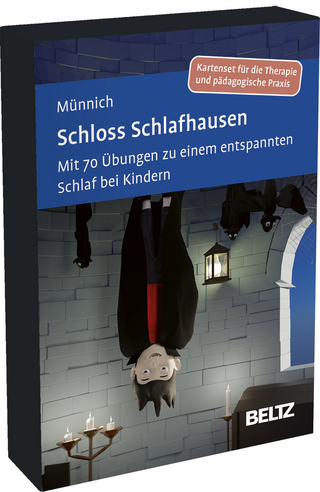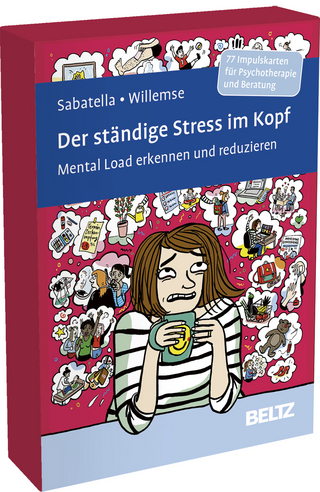
VALUE PACK
McGraw-Hill Education / Australia
978-1-76042-286-8 (ISBN)
Passer 3eThe third edition of Psychology: The science of mind and behaviour provides an authoritative and highly-regarded introduction to this fascinating topic. Although many approaches to the study of Psychology are presented in this text, the emphasis is on the biopsychosocial model. This serves as an underlying commonality to the examination of each topic, giving direction to students at the beginning of their studies in this well-researched field.
Written by a team of Australian and New Zealand-based academics, each a subject matter expert, this edition contains updated case studies and a brand new feature, In the News, presenting interesting topics in Psychology. Additional local and global cases explore cross-cultural and Indigenous psychology, and probing questions encourage students to think critically about cases and to examine the research methods used in real-life examples.
Aided by its strong pedagogical framework, Psychology makes use of cutting-edge learning technology and interactive resources to provide a comprehensive learning solution.
Taines 4eA Practical Guide To Writing: Psychology 4e continues to be a useful resource for students writing in psychology. Its logical structure walks you through the writing process step-by-step, from interpreting the question or problem posed, to gathering relevant information, and then writing the assignment. Central to any writing in psychology is the use of American Psychological Association (APA) style. This edition helps demystify APA style to ensure that you follow the correct formatting and referencing conventions in your work. It is enhanced through the addition of several new and engaging key features to help you continue to master your writing skills.
McGraw-Hill Connect is a digital teaching and learning environment that gives you the means to better connect with your coursework,with your instructors, and with the important concepts that you will need to know for success now and in the future. With Connect you can practise important skills at your own pace and on your schedule. This version of Connect comes with LearnSmart, an adaptive study tool proven to strengthen memory recall, increase class retention, and boost grades. By identifying your strengths and weaknesses, you can ensure that every minute you spend studying has the highest possible impact. With users experiencing an average of a letter grade improvement, adaptive learning is a proven way to increase your success and confidence.
Michael W. Passer, Ph.D., coordinates the introductory psychology program at the University of Washington, which enrolls about 2,500 students per year, and also is the faculty coordinator of training for new teaching assistants (TAs). He received his bachelor’s degree from the University of Rochester and his PhD in Psychology from the University of California, Los Angeles, with a specialization in social psychology. Dr. Passer has been a faculty member at the University of Washington since 1977. A former Danforth Foundation Fellow and University of Washington Distinguished Teaching Award finalist, Dr. Passer has had a career-long love of teaching. Each academic year he teaches introductory psychology twice and a required pre-major course in research methods. Dr. Passer developed and teaches a graduate course on the Teaching of Psychology, which prepares students for careers in the college classroom, and also has taught courses in social psychology and attribution theory. He has published more than 20 scientific articles and chapters, primarily in the areas of attribution, stress, and anxiety, and has taught the introductory psychology course for 20 years. Ronald E. Smith, Ph.D., is Professor of Psychology and Director of Clinical Psychology Training at the University of Washington, where he also has served as Area Head of the Social Psychology and Personality area. He received his bachelor’s degree from Marquette University and his PhD from Southern Illinois University, where he had dual specializations in clinical and physiological psychology. His major research interests are in anxiety, stress and coping, and in performance enhancement research and intervention. Dr. Smith is a Fellow of the American Psychological Association. He received a Distinguished Alumnus Award from the UCLA Neuropsychiatric Institute for his contributions to the field of mental health. He has published more than 160 scientific articles and book chapters in his areas of interest and has authored or co-authored 23 books on introductory psychology, human performance enhancement, and personality, including Introduction to Personality: Toward an Integration, with Walter Mischel and Yuichi Shoda (Wiley, 2004). An award-winning teacher, he has more than 15 years of experience in teaching the introductory psychology course. My main field of research is Personality psychology. My research involves extending and clarifying current developments in personality psychology and critically assessing personality theories. I like to contribute to the theoretical frameworks that we use to develop accounts of personality through examining the underlying assumptions and drawing attention to critical issues relevant to all personality theories (e.g., the distinctions between description and explanations, and relations and the terms of relations). My research here also involves understanding what is meant by 'self' and 'identity', personality responses to serious health threats, the relation of personality to evolutionary psychology, personality and culture, neuroscience and personality, and the influence of attachment processes upon development. I also enjoy looking at the history of personality research (and of psychology generally). My own approach to personality favours a psychodynamic perspective and my central interests here include defense mechanisms (especially repression) and unconscious mental processes. My published research covers the neuroscientific debate surrounding Freudian dream theory, defense mechanisms, and whether repression can be a conscious process. The theory of Freudian repression has been attacked variously in the scientific literature but I have endeavoured to demonstrate that many critics of Freudian repression actually have very little understanding of what Freud had to say on the matter. Our sense of vision is fundamental to our ability to interact with the world. Additionally, a great deal of our understanding of how the brain functions is based on our knowledge of how it processes visual information. The aim of my research is to further our understanding of the workings of the human visual system, with an emphasis on how various visual pathways interact at different levels in the brain. While I am interested in all aspects of visual processing, my research to date has mainly focused on motion, stereopsis and face processing I joined the School in 2010 after 2.5 years working as a post-doctoral researcher in the Discipline of Paediatrics at the University of Adelaide. I currently teach into developmental psychology topics, cognitive neuroscience, sleep, memory and general psychology topics at an undergraduate level. I supervise Honours, Masters and PhD students in the School and across institutions. My research currently focuses on the importance of sleep for memory and cognitive performance, child mental health, critical periods of cognitive development, and the neural basis of cognitive functions. Together with Drs Hannah Keage and Owen Churches, I coordinate the new Cognitive Neuroscience laboratory which houses EEG and transcranial doppler facilities. I also collaborate with researchers at the Childrens Research Centre, University of Adelaide, at which I am an Affiliate Lecturer, and the Department of Neurology at the University of Rome (La Sapienza), Italy Andrew is an Associate Professor in the School of Psychology and a clinical psychologist. He supervises Honours and higher degree students. Research interests: Infant, child and adolescent mental health,Developmental Psychopathology, Attachment theory, Evolutionary psychology,Psychoanalysis Scientifically I am interested in understanding human intelligence and cognition. I tackle this central question from both psychological and biological perspectives (particularly using pharmacological methods). A significant part of this approach is to better understand the cognitive effects of a wide range of pharmacologically active substances ranging from illicit drugs to herbal and nutrient medicines. From a practical perspective I am interested in improving emotional competencies in organizations and in educational settings, particularly primary and secondary schools
Passer 3e Chapter 1: The Science of Psychology Chapter 2: Studying Behaviour Scientifically Chapter 3: Genes, Environment and Behaviour Chapter 4: The Brain and Behaviour Chapter 5: Sensation and Perception Chapter 6: States of Consciousness Chapter 7: Learning: The Role of Experience Chapter 8: Memory Chapter 9: Language and Thinking Chapter 10: Intelligence Chapter 11: Motivation and Emotion Chapter 12: Development over the Life-Span Chapter 13: Personality Chapter 14: Health and Well-Being Chapter 15: Psychological Disorders Chapter 16: Treatment of Psychological Disorders Chapter 17: Social Thinking and Behaviour Chapter 18: Indigenous and Cross-Cultural PsychologyTaines 4eChapter 1: BeginningChapter 2: Defining the taskChapter 3: Gathering and evaluating materialChapter 4: WritingChapter 5: Writing essaysChapter 6: Writing research reportsChapter 7: ReferencingChapter 8: PresentationChapter 9: Trouble-shooting
| Erscheint lt. Verlag | 15.9.2018 |
|---|---|
| Co-Autor | Felicity Allen, Simon Boag, Mark Edwards |
| Sprache | englisch |
| Maße | 230 x 270 mm |
| Gewicht | 2490 g |
| Themenwelt | Geisteswissenschaften ► Psychologie ► Familien- / Systemische Therapie |
| Geisteswissenschaften ► Psychologie ► Sozialpsychologie | |
| ISBN-10 | 1-76042-286-X / 176042286X |
| ISBN-13 | 978-1-76042-286-8 / 9781760422868 |
| Zustand | Neuware |
| Haben Sie eine Frage zum Produkt? |
aus dem Bereich


